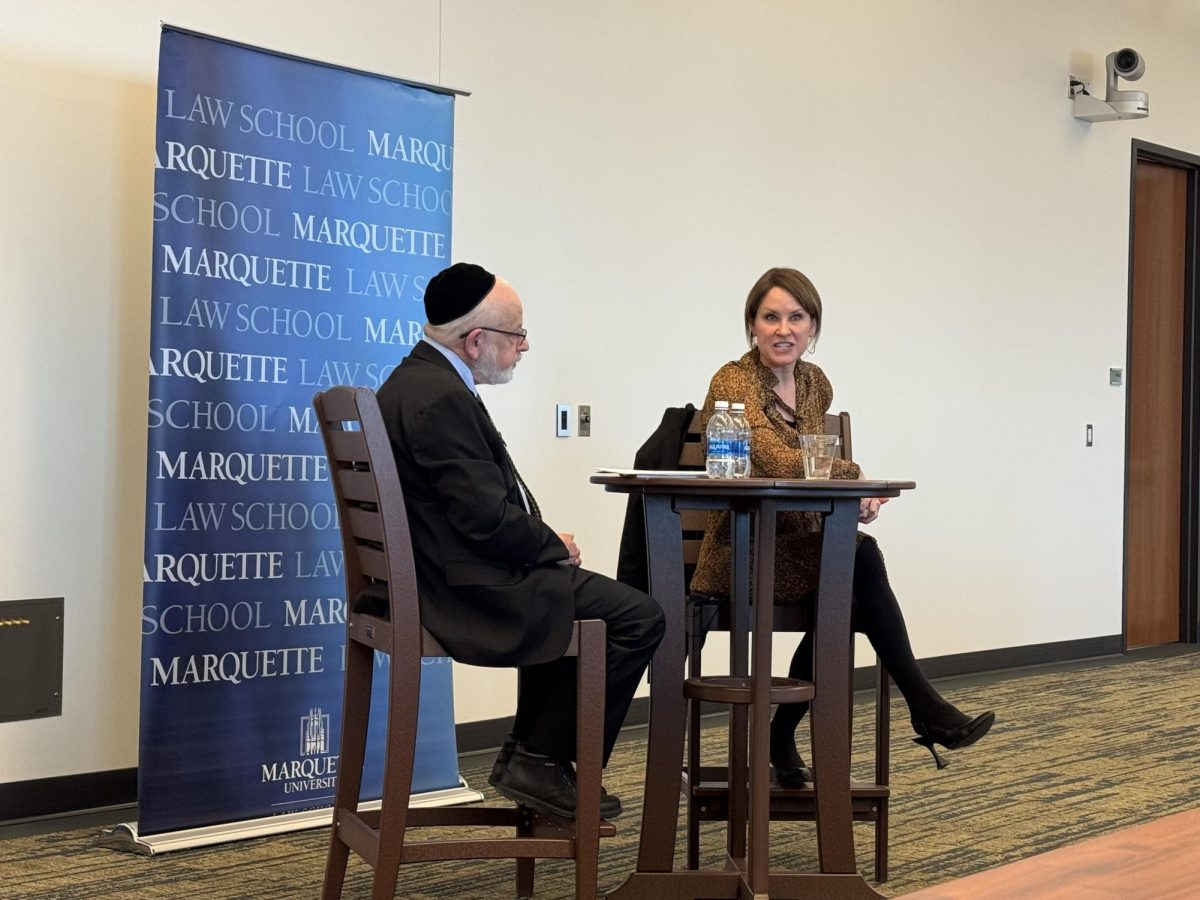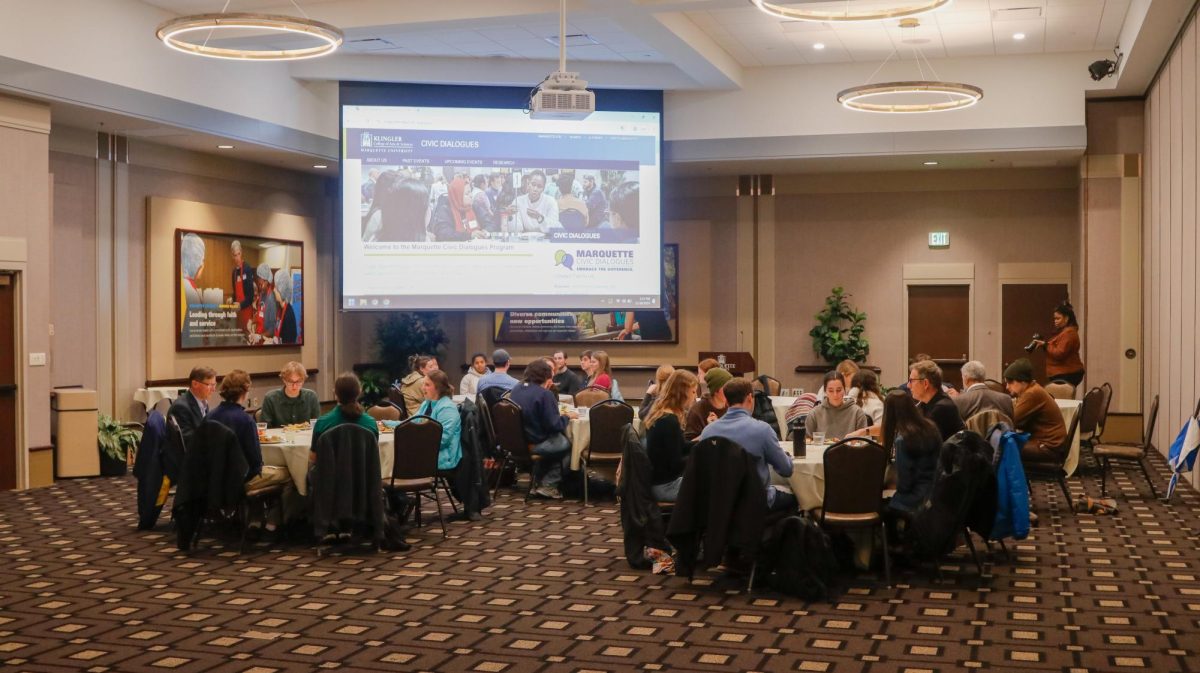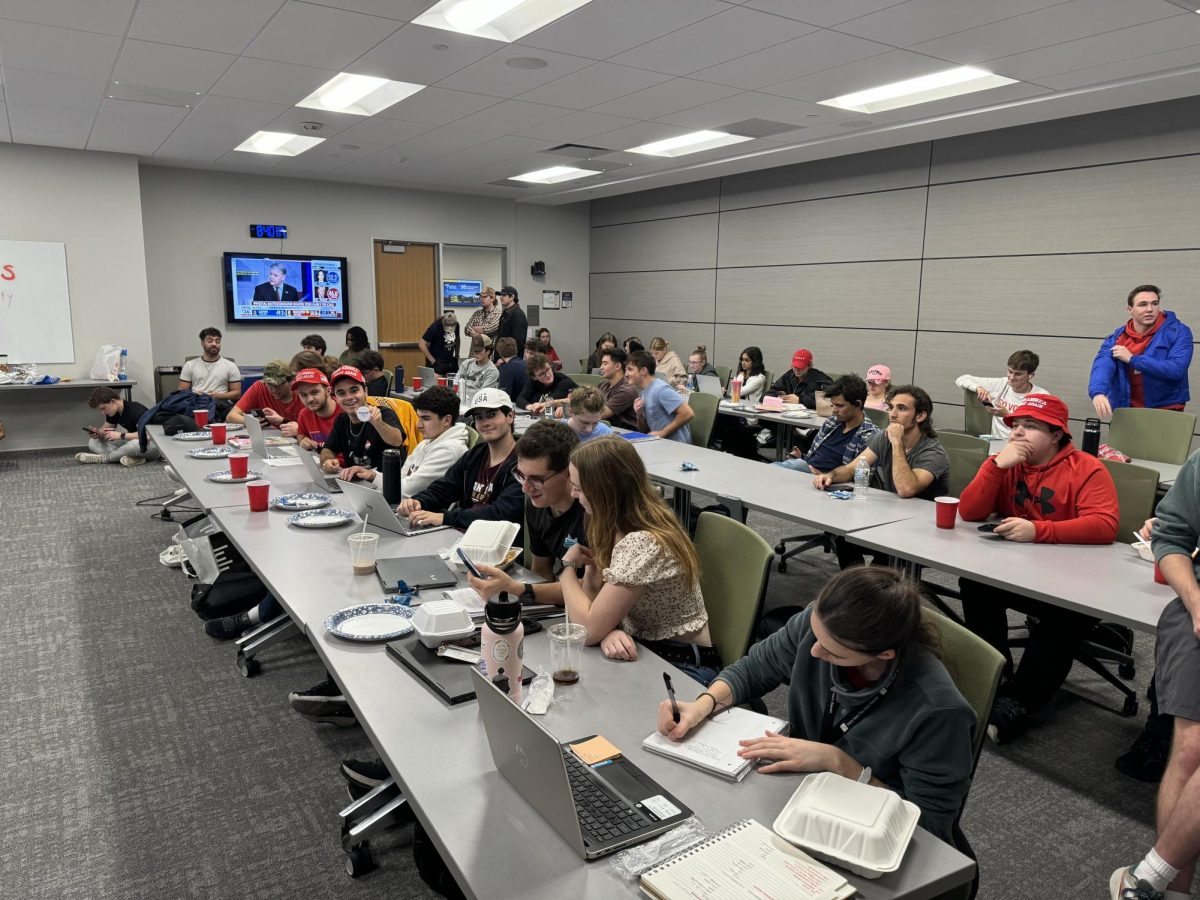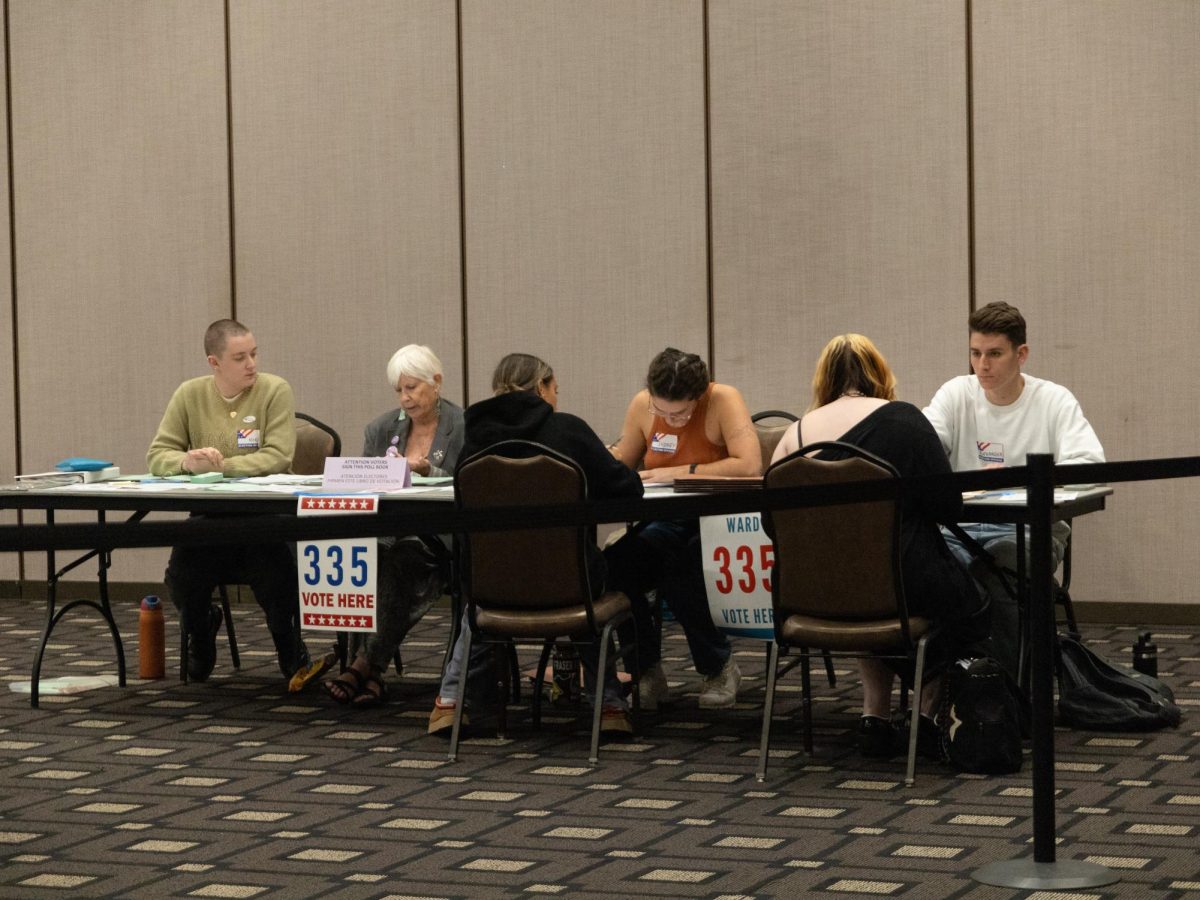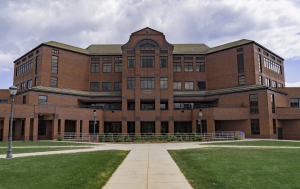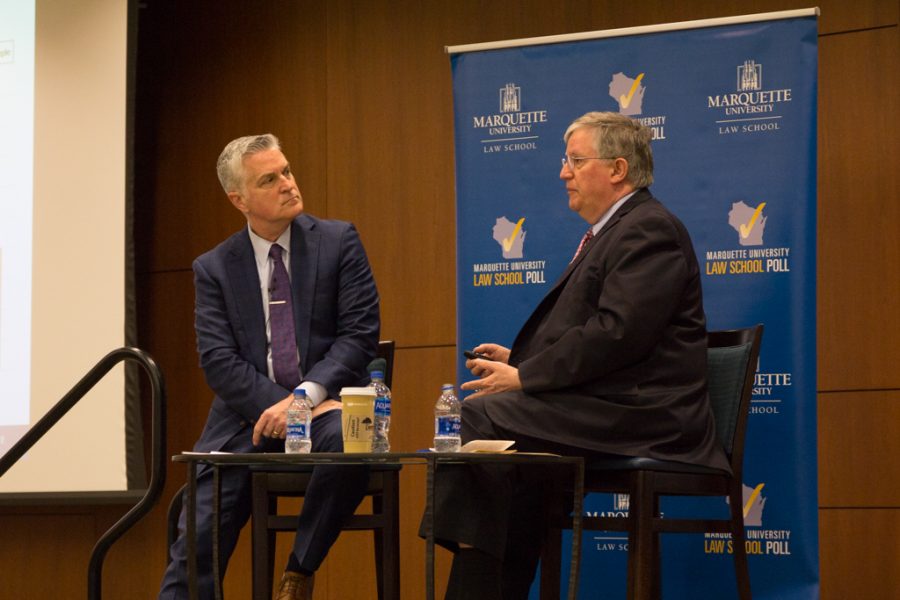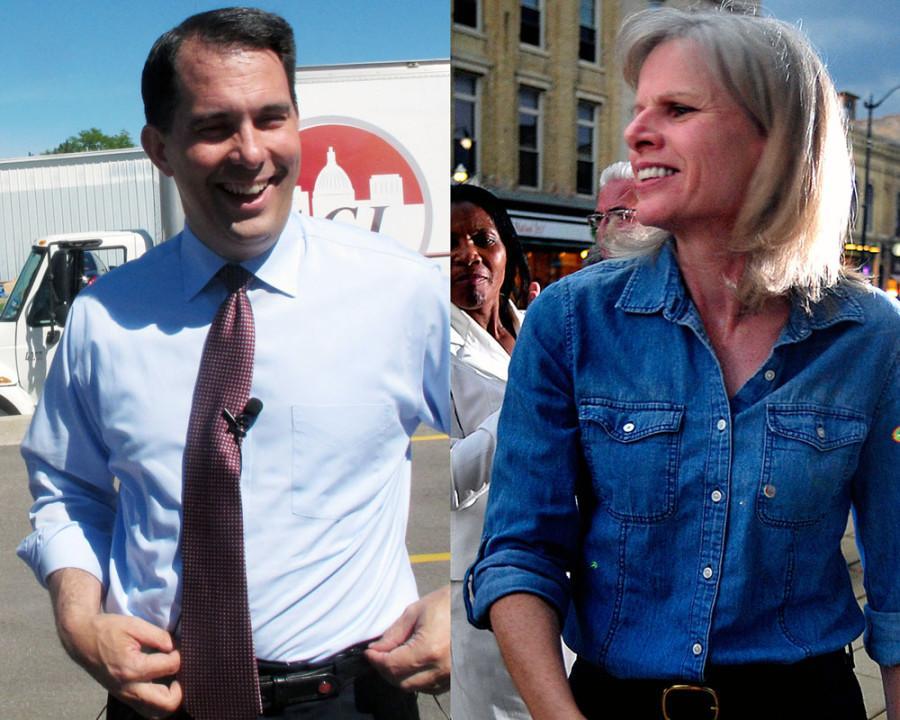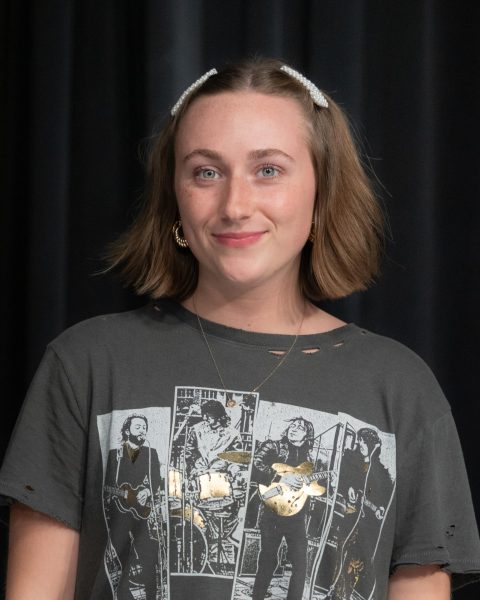There is a world beyond Marquette University, and to make a difference in it, the university can empower students to cast a vote and make a change.
Nov. 8 is a very important day in Wisconsin. From 7 a.m. until 8 p.m., polling sites will be open for voters to cast their ballots. The positions of governor, lieutenant governor, attorney general, state treasurer, secretary of state, state senators and state representatives are on the line. People can even do same day registration at their polling location on Election Day.
There is a lot at stake in this race.
Marquette Law School’s August survey found that 67% of Wisconsin voters considered inflation to be a very concerning issue. But, that’s not the only one.
Many recent political advertisements have accused Democratic candidates Tony Evers and Mandela Barnes of being “soft on crime.” And, 88% of state voters have claimed to be “somewhat” or “very” concerned about crime according to a Marquette poll. Whether or not attack ads carry credibility, the concern of crime in Wisconsin does.
Inevitably reproductive rights are at the forefront of many voters’ minds.
After the recent overturn of Roe v. Wade, how each state will navigate legislation concerning abortion is still up in the air. Currently, Wisconsin’s abortion law leaves providers of in-state abortion at risk of prosecution. In the midst of heated political discourse and polarizing opinions, reproductive rights are in danger.
But, who is at the heart of all this?
Arguably the two most influential elections coming up Nov. 8 are for governor and senator. These races are largely between incumbent Gov. Tony Evers (D) and Tim Michels (R) for governor, and lieutenant governor Mandela Barnes (D) and incumbent Sen. Ron Johnson (R) for senator.
For students at Marquette, the main concern of this should be to casting their vote.
Ultimately, college is meant to prepare students for the hand they play in the development of the world around them – there is no better way to make a difference than to help elect the leaders who govern their cities, states and countries.
It is important for the university to remember that there are all full–time students, some of us with jobs and prior commitments, who might need flexibility and forgiveness in the school day to go out and vote.
The attendance policy at Marquette is predominantly enforced on a class–to–class basis.
A handful of students’ classes may not require nor keep track of attendance each day, whereas others operate in a more strict manner and penalize participation or attendance points for each class missed. For election day, the faculty as a whole should consider granting students the allowance to be absent without penalty.
Absences are allowed under the premise of illness, loss or emergency – all issues that fall under the umbrella of political governance.
Many students missed out on classes, graduation and other events as a result of the COVID–19 pandemic – much of that due to the mishandling of the situation by political powers.
Losses of loved ones and emergencies ranging from social injustices to crime occur every day in America – also issues that the people elected to represent citizens in government play a significant hand in.
With that, if it is acceptable for students to be absent in light of these situations, it should be acceptable for students to be absent in pursuit of their solution.
In addition, students should prioritize their democratic duty above all else.
Students attend classes, work, extracurriculars and social events throughout the duration of the school year, but the window of time to vote only comes so often. While we have the opportunity to cast a vote and make a difference, students must take it.
Editorial topics by the Marquette Wire are decided at weekly meetings between members of the executive board. The editorial is crafted with leadership by the executive opinions editor. The executive board consists of the executive director of the Wire, managing editor of the Marquette Tribune, managing editor of the Marquette Journal, general manager of MUTV, general manager of MUR and ten additional top editors across the organization.




